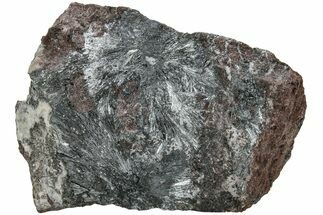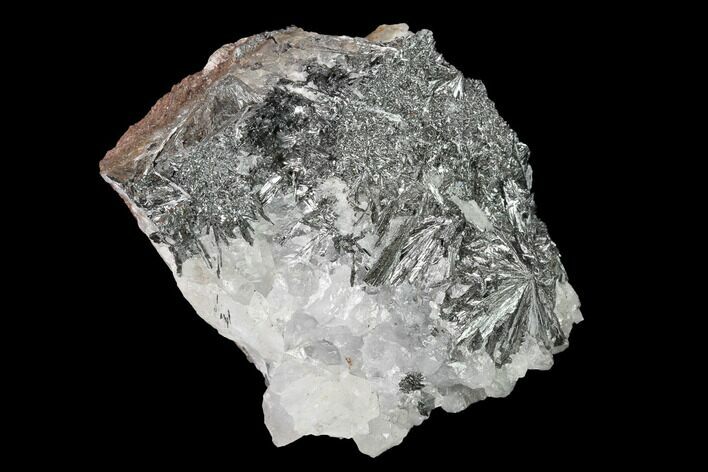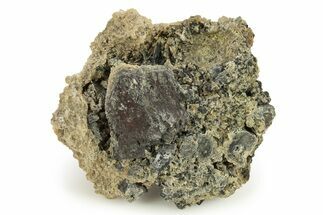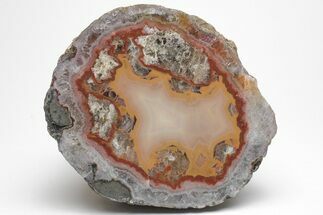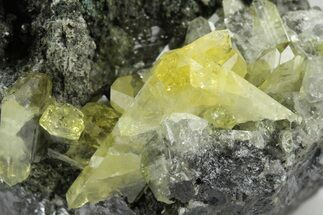This Specimen has been sold.
3.4" Metallic, Needle-Like Pyrolusite Cystals in Quartz - Morocco
This is a lustrous formation of radiating silver pyrolusite from Morocco. The specimen features several radiating sprays of these shiny, metallic crystals in a quartz matrix.
Pyrolusite is a mineral consisting of manganese dioxide (MnO2) and is important as an ore of manganese. It has a silvery metallic luster, a black or bluish-black streak, and readily soils the fingers. It commonly is found in finely packed fibrous, acicular, and radial forms composed of very fine needles or fibers.
About Quartz
Quartz is the name given to silicon dioxide (SiO2) and is the second most abundant mineral in the Earth's crust. Quartz crystals generally grow in silica-rich environments--usually igneous rocks or hydrothermal environments like geothermal waters--at temperatures between 100°C and 450°C, and usually under very high pressure. In either case, crystals will precipitate as temperatures cool, just as ice gradually forms when water freezes. Quartz veins are formed when open fissures are filled with hot water during the closing stages of mountain formation: these veins can be hundreds of millions of years old.
Quartz is the name given to silicon dioxide (SiO2) and is the second most abundant mineral in the Earth's crust. Quartz crystals generally grow in silica-rich environments--usually igneous rocks or hydrothermal environments like geothermal waters--at temperatures between 100°C and 450°C, and usually under very high pressure. In either case, crystals will precipitate as temperatures cool, just as ice gradually forms when water freezes. Quartz veins are formed when open fissures are filled with hot water during the closing stages of mountain formation: these veins can be hundreds of millions of years old.
SPECIES
Pyrolusite & Quartz
LOCATION
Imini Mine, Ouarzazate Province, Morocco
SIZE
3.4" Wide
CATEGORY
ITEM
#141003
 Reviews
Reviews
